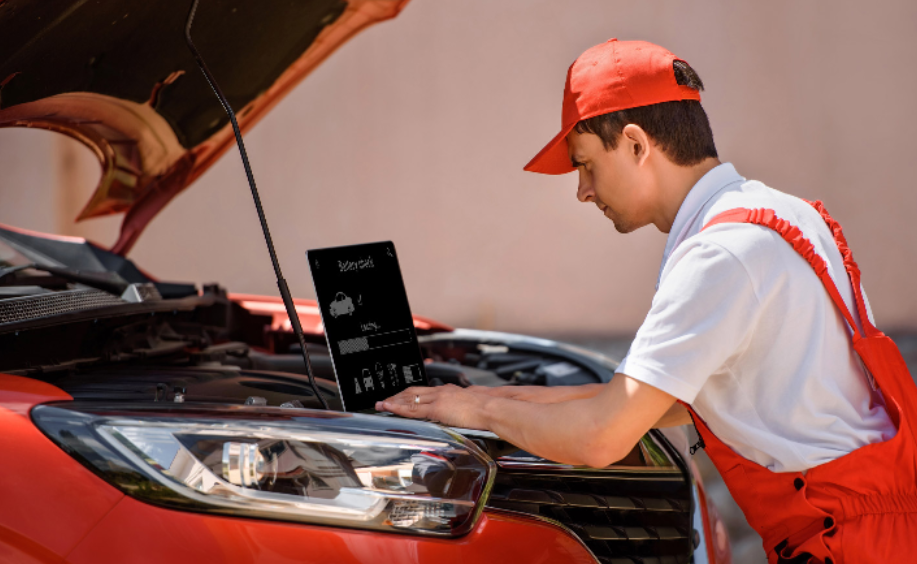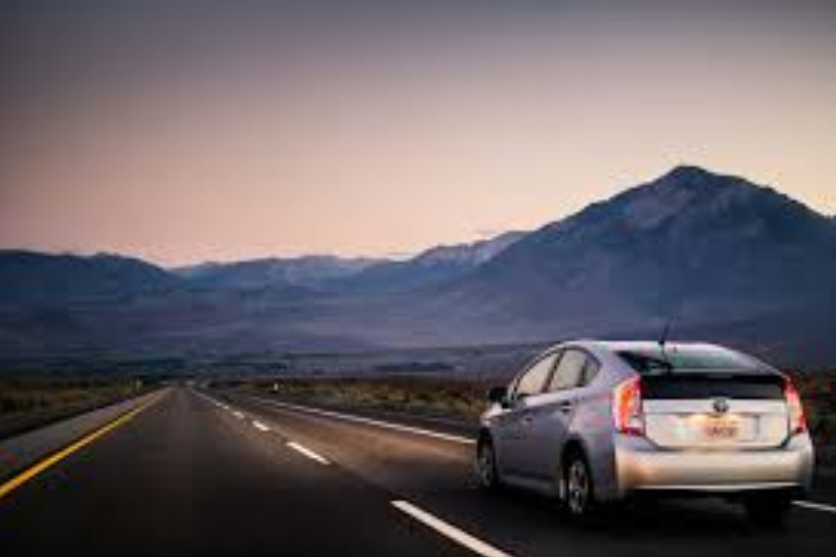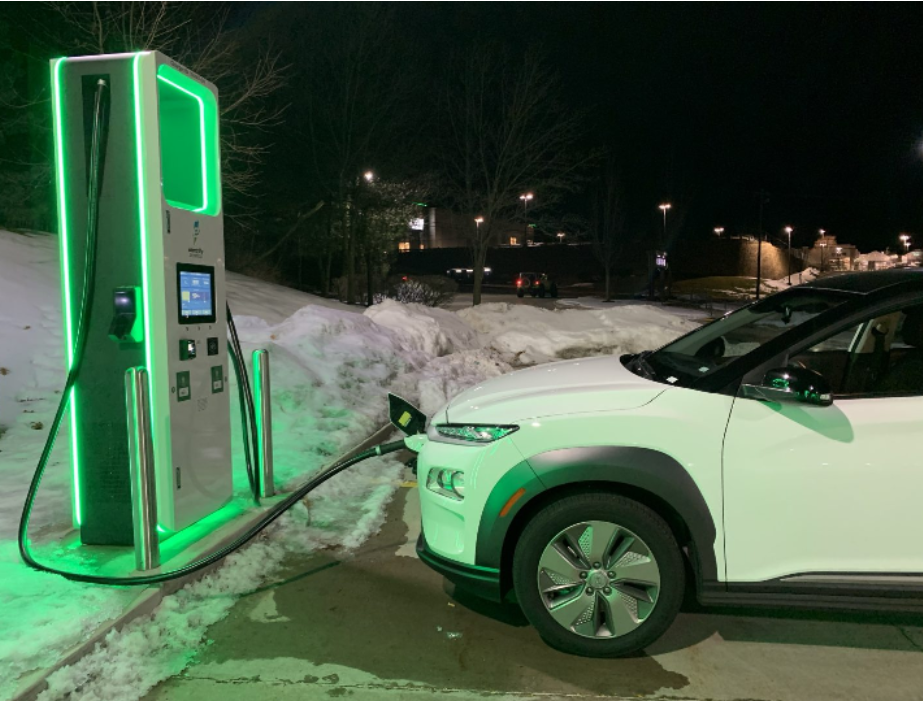Introduction: The Hybrid Dilemma
When hybrid cars first hit the market, I remember thinking, “Is this the future, or just a pit stop on the road to full electrification?” Two decades later, the debate rages on. Hybrids occupy a fascinating space between traditional internal combustion engines (ICEs) and electric vehicles (EVs), blending elements of both worlds in an attempt to balance sustainability and practicality.
In Charlotte, North Carolina, hybrids have found a loyal following. With services like Hybrid Battery Service, which excels in extending battery life through expert care, these vehicles are more practical than ever. But the question remains: are hybrids just a stepping stone to EVs, or are they the ultimate compromise in green driving? Let’s dive into the data, the tech, and the global chatter to find out.
A Brief History of Hybrids: From Concept to Reality
The Early Days: An Idea Before Its Time
Hybrid cars weren’t born in the 1990s, as many assume. In fact, the concept dates back to 1900 when Ferdinand Porsche developed the Lohner-Porsche Mixte Hybrid, a vehicle combining a gas engine with an electric motor. While revolutionary, it never gained traction due to the era’s limited technology and infrastructure.
Fast-forward nearly a century, and Toyota revitalized the hybrid dream with the Prius in 1997. This quirky, egg-shaped car became the poster child for green driving, selling over 18 million units globally by 2023. The Prius’s success spurred other automakers, such as Honda and Ford, and even luxury brands like Lexus, to jump on the hybrid bandwagon.
The Role of Global Environmental Policies
The global adoption of hybrids wasn’t just about technological advancement; it was driven by necessity. Stricter emissions regulations in the EU, China, and California forced automakers to innovate. The Kyoto Protocol of 1997 and, later, the Paris Agreement of 2015 created a framework for reducing carbon emissions, further accelerating hybrid adoption.
The Hybrid Advantage: Efficiency Without Anxiety

Fuel Economy Meets Practicality
One of the most significant selling points of hybrids is their fuel efficiency. The Toyota Prius, for instance, delivers an average of 58 mpg in city driving, thanks to its ability to switch seamlessly between its gas engine and electric motor. This efficiency makes hybrids ideal for urban areas like Charlotte, where stop-and-go traffic reigns supreme.
Hybrid owners in North Carolina often praise the ability to drive extended distances without hunting for charging stations, a common frustration among EV owners. According to the U.S. Department of Energy, the average hybrid emits 50% less CO2 than a traditional gas-powered vehicle, making it a greener choice for eco-conscious drivers.
Hybrid Battery Repair Charlotte: A Lifesaver for Local Drivers

Of course, even the best technology needs maintenance. Hybrid Battery Service offers specialized care to keep hybrids running efficiently. Charlotte drivers know they can count on experts to diagnose and resolve battery issues, extending their vehicles’ lifespans.
The Downsides of Hybrid Technology
The Cost of Complexity
While hybrids are celebrated for their efficiency, they come with a price: complexity. Combining an ICE and an electric motor means there are more components to maintain and repair. Hybrid batteries, in particular, are a pain point for many owners. Depending on the make and model, replacing a hybrid battery can cost anywhere from $1,000 to $6,000.
In Charlotte, where hybrids are increasingly popular, Hybrid Battery Repair in Charlotte services have mitigated some of these concerns. But for drivers in less serviced areas, the fear of costly repairs remains a barrier to adoption.
Environmental Concerns: Are Hybrids Truly Green?
Critics often question whether hybrids are as eco-friendly as they seem. Manufacturing hybrid batteries requires mining for rare earth metals like lithium and cobalt, processes that have significant environmental and ethical implications. A 2021 report by Amnesty International highlighted the harsh conditions in cobalt mines, where child labor is still a documented issue.
Additionally, hybrids are not zero-emission vehicles. While they produce fewer emissions than traditional cars, they still burn fossil fuels. In regions where electricity grids rely on coal, hybrids may offer only marginal environmental benefits compared to fully electric vehicles.
EVs vs. Hybrids: The Battle for the Green Throne
The Rise of EV Giants
In the past decade, EVs have surged in popularity thanks to companies like Tesla, Rivian, and Lucid Motors. Tesla’s Model 3, for instance, became the world’s best-selling EV in 2021, with over one million units sold. EVs boast zero tailpipe emissions and are often cheaper to maintain than hybrids.
But let’s not ignore the elephant in the room: charging infrastructure. While Charlotte has made strides in installing EV chargers, rural areas in North Carolina still lag behind. Hybrids shine here, offering the flexibility of gas stations combined with the efficiency of electric power.
Global Statistics: EV Adoption vs. Hybrids
According to the International Energy Agency (IEA), global EV sales surpassed 10 million units in 2023, while hybrids accounted for approximately 7 million sales. Despite the EV boom, hybrids remain critical to the transition to greener mobility. Their lower upfront costs and broader usability make them appealing to a wide range of consumers.
The Future of Hybrids: Evolution or Extinction?
Toyota and Honda’s Commitment to Hybrids
Major automakers like Toyota and Honda are doubling down on hybrid technology. In 2022, Toyota announced plans to invest $70 billion in electrified vehicles, with a significant portion dedicated to hybrid and plug-in hybrid models. Honda, meanwhile, has pledged to make hybrids 100% of its European sales by 2025.
This commitment suggests that hybrids are far from obsolete. Instead, they may evolve to bridge the gap between traditional and fully electric vehicles for decades to come.
Hybrid Battery Repair Charlotte: Supporting a Sustainable Future
Locally, services like Hybrid Battery Service play a vital role in sustaining hybrid adoption. By providing affordable and reliable solutions for battery maintenance, they ensure that hybrids remain a viable and eco-friendly option for drivers in Charlotte and beyond.
The Verdict: Middle Ground or Final Frontier?
Hybrids are undeniably a middle ground in the transition to sustainable transportation, but whether they are the final frontier depends on how you frame the question. For now, hybrids offer a practical solution for drivers who aren’t ready to commit to the limitations of EVs.
Hybrids have carved out a unique niche. They’re not just a compromise; they’re a stepping stone, a proof of concept, and a reliable companion for eco-conscious drivers. For those lucky enough to live in cities like Charlotte, Hybrid Battery Service ensures this middle ground remains as solid as ever.
Innovations on the Horizon: Hybrids 2.0
The Role of Plug-In Hybrids
As we look toward the future, plug-in hybrids (PHEVs) are stepping into the spotlight as a logical evolution of hybrid technology. Unlike traditional hybrids, PHEVs offer larger battery capacities and the ability to drive longer distances on electric power alone. Models like the Mitsubishi Outlander PHEV and Volvo XC90 Recharge are setting benchmarks, offering battery power ranges of up to 40 miles before switching to their gas engines.
PHEVs are a practical alternative in places like Charlotte, where EV infrastructure is growing but not yet ubiquitous. Drivers can enjoy the perks of electric driving for daily commutes while retaining the flexibility of a gas engine for longer trips. Combining these features ensures that hybrids remain relevant in the broader landscape of green mobility.
Automakers Betting Big on Hybrid Tech
Toyota, often dubbed the “king of hybrids,” isn’t slowing down its investment in hybrid technology. The company recently unveiled the 2024 Prius Prime, a plug-in hybrid boasting a range of 44 miles on electric power and an astounding combined fuel efficiency of over 90 mpg. Meanwhile, Ford’s hybrid lineup, including the F-150 Hybrid, proves that even full-size trucks can embrace greener driving.
These innovations demonstrate that hybrids are far from reaching their peak. Automakers are reimagining what hybrids can achieve, making them an appealing choice for eco-conscious individuals and families seeking versatility.
Balancing the Scales: The Case for Co-Existence
The debate over whether hybrids or EVs are superior often overlooks an important point: the two can coexist. Hybrids are an excellent option for regions with developing EV infrastructure, while EVs thrive in urban areas with dense charging networks. Together, they create a balanced pathway toward reducing global carbon emissions.
In Charlotte, the combination of hybrids and EVs is evident on the streets. The city has many charging stations, but hybrids are popular for drivers who prioritize convenience and reliability. Hybrid Battery Repair Charlotte services ensure that hybrids can seamlessly integrate into this evolving ecosystem, offering a reliable green solution.
The Consumer Perspective
From a consumer standpoint, combining hybrids and EVs often boils down to practicality. A study by J.D. Power in 2023 revealed that 52% of American car buyers consider hybrids a “safer” investment due to their dual powertrain and extended range. While attractive for their environmental benefits, EVs still face hurdles like charging time and range anxiety, particularly in less urbanized areas.
Lessons from the Past: Why Hybrids Matter
Hybrids have always been about bridging gaps. They emerged when fully electric vehicles were not yet viable for mass production, and they offered a compromise that appealed to both consumers and regulators. In doing so, hybrids paved the way for broader acceptance of electrified vehicles.
Looking back, it’s clear that hybrids have played a crucial role in normalizing green driving. From the early days of the Prius to the modern innovations of plug-in hybrids, these vehicles have consistently demonstrated that sustainability and practicality can go hand in hand.
If you’re a hybrid owner in Charlotte, North Carolina, there’s no better time to ensure your car is in peak condition. Whether you’re looking to extend the life of your hybrid battery or tackle maintenance issues head-on, Hybrid Battery Service is your trusted partner. They’ve built a reputation for excellence in hybrid battery repair, keeping the green driving dream alive. Reach out today and experience why they’re the best hybrid battery services in NC. Together, let’s drive toward a greener future—one hybrid at a time.
For hybrid drivers in Charlotte, North Carolina, Hybrid Battery Service provides the support needed to keep these vehicles running at their best. By ensuring reliable battery performance, they help drivers continue their green journey with confidence. As we navigate the road to sustainability, hybrids remind us that innovation is about progress, not perfection.
So, whether hybrids are your middle ground or your final frontier, one thing is certain: they’ve earned their place in the story of green mobility. And for that, we owe a nod to the hybrid pioneers and the dedicated teams keeping them running strong, like Hybrid Battery Service right here in Charlotte.






